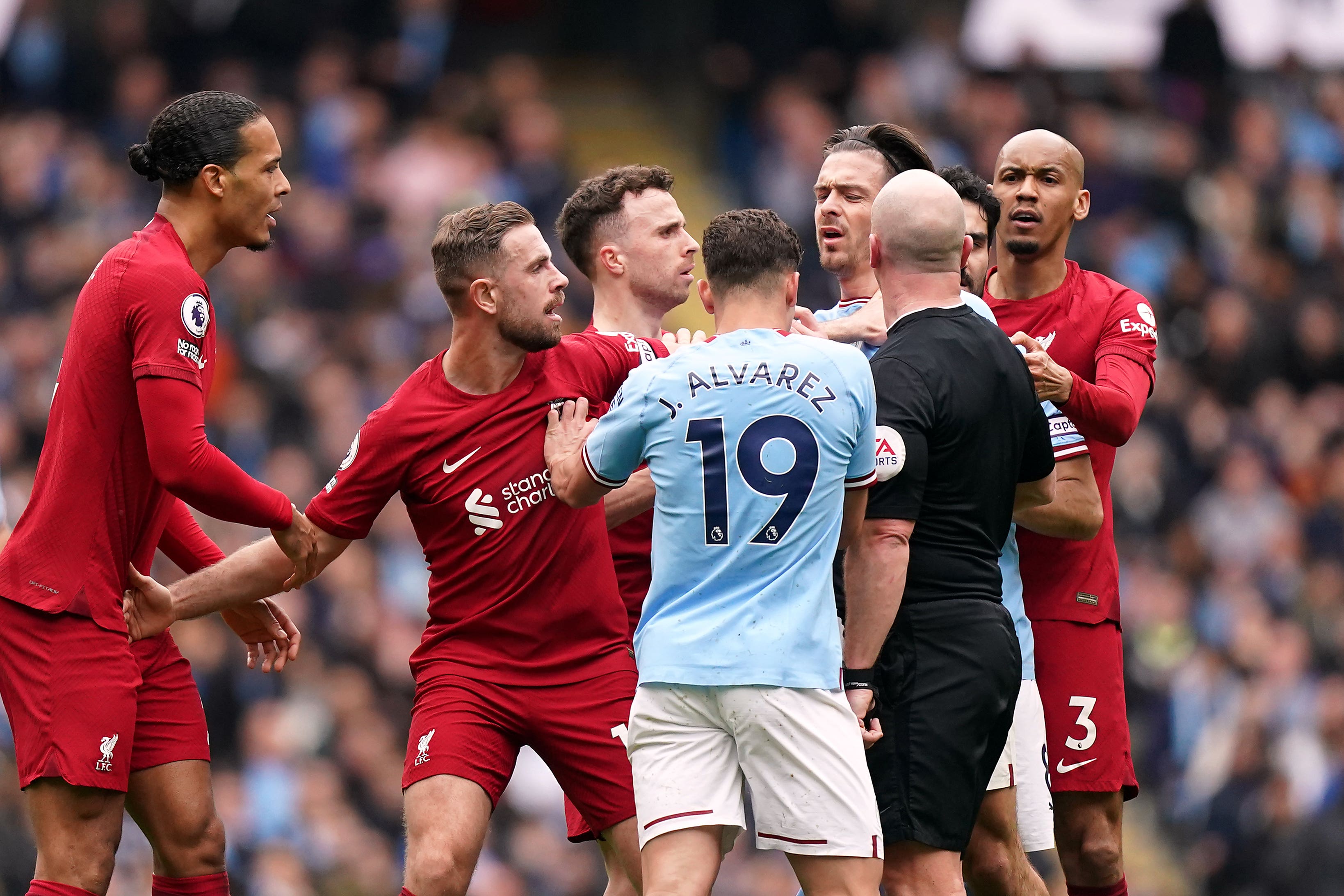Player behaviour towards referees tops agenda at meeting of game’s lawmakers
The IFAB is meeting at a Heathrow hotel on Tuesday.

Your support helps us to tell the story
From reproductive rights to climate change to Big Tech, The Independent is on the ground when the story is developing. Whether it's investigating the financials of Elon Musk's pro-Trump PAC or producing our latest documentary, 'The A Word', which shines a light on the American women fighting for reproductive rights, we know how important it is to parse out the facts from the messaging.
At such a critical moment in US history, we need reporters on the ground. Your donation allows us to keep sending journalists to speak to both sides of the story.
The Independent is trusted by Americans across the entire political spectrum. And unlike many other quality news outlets, we choose not to lock Americans out of our reporting and analysis with paywalls. We believe quality journalism should be available to everyone, paid for by those who can afford it.
Your support makes all the difference.Trials designed to stop players surrounding referees during flashpoint moments could get the green light at a meeting of football’s lawmaking body in London on Tuesday.
Tackling poor participant behaviour is a top priority for the International Football Association Board (IFAB) and the PA news agency understands it is set to be the dominant topic at the organisation’s annual business meeting at a Heathrow hotel.
Players surrounding referees and assistants after controversial incidents has become a common sight in the modern game, but the IFAB is determined to limit contact in such situations to a respectful dialogue between the referee and the team captain.
Precisely how that is achieved is still to be worked out, with the IFAB understood to be keen to run some initial tests in the amateur game to work out the practicalities and iron out the unintended consequences of any new restrictions.
One consideration is the creation of a ‘no go zone’ around an official which only a captain can enter, but testing will be required to see how effective and practical this is in reality.
Approval of trials in top-level competitions could be granted on Tuesday to follow those initial tests, with lawmakers keen to move quickly on this issue.
Sin-bins for bad behaviour, which have been utilised in grassroots youth football, could also be extended into the adult amateur game, while measures to combat mass confrontations between teams, such as cooling down periods, will also be discussed.
Guidance could also be issued around stricter application of the existing laws of the game which tackle time-wasting, such as better enforcement of the six-second rule for goalkeepers to release the ball and treatment and assessment of ‘tactical injuries’ designed to break the momentum of the game.
In March, the IFAB issued guidance to all competitions on more accurately calculating time lost to stoppages, following on from a concerted effort to do so at last year’s men’s World Cup finals in Qatar.
A discussion will also be held on updating the handball law for next season. The law could be changed so that an unintentional handball which denies an obvious goal-scoring opportunity is only sanctioned with a yellow card rather than a red, and that an unintentional handball which stops a promising attack receives no card at all.
The IFAB board is also set to receive a short update on the ongoing permanent concussion substitute trial.
World players’ union FIFPRO and the World Leagues Forum have previously called for a trial of temporary concussion substitutes, but there is not even the possibility of such a trial taking place until the ongoing testing of permanent concussion substitutes is complete and data from the trial has been fully analysed.
The IFAB announced last month that a group had been established to carry out a review of VAR protocols, and there is also expected to be some time given over to hearing an update on the group’s progress.